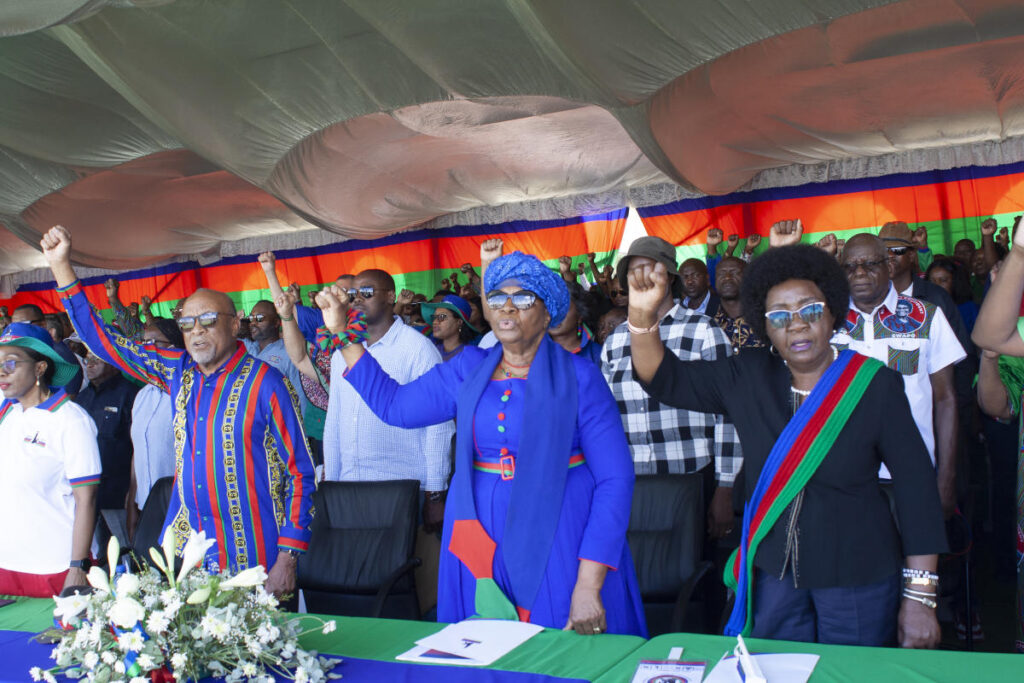Namibia is poised for a potentially historic presidential election, as Vice President Netumbo Nandi-Ndaitwah runs for office, aiming to become the nation’s first female president. With approximately 1.4 million registered voters, representing nearly half of Namibia’s population, the election features 15 political parties vying for the presidency and parliamentary seats. Initial results from early polls conducted by Namibia’s Electoral Commission, particularly across foreign missions and among seafarers and security personnel, suggest that Nandi-Ndaitwah and her party, the South West Africa People’s Organization (SWAPO), hold a significant lead. SWAPO has been the ruling party since Namibia’s independence from apartheid government in South Africa in 1990, but its previous dominance has waned.
In recent years, particularly during the 2019 elections, SWAPO lost its two-thirds majority in the National Assembly for the first time since 1994, largely due to allegations of corruption and money laundering that plagued the fishing industry, resulting in the arrest of two cabinet ministers and the imprisonment of business associates. Political analyst Henning Melber warns that the 2019 election results serve as a critical warning for SWAPO and Nandi-Ndaitwah, emphasizing the need to resonate with younger voters who do not share the emotional ties to the party’s liberation history. Just like other African liberation movements, SWAPO faces the challenge of remaining relevant, especially among a generation referred to as “born-frees,” who prioritize actual governance over historical narratives.
Addressing the pressing issues facing the youth and women of Namibia is part of Nandi-Ndaitwah’s campaign strategy, as she aims to tackle the staggering 20% unemployment rate. She has outlined a plan to spend around 85 billion Namibian dollars (approximately $4.7 billion) over five years to create over 500,000 new jobs, although critics have labeled these promises as overly ambitious. Aside from youth employment, women’s issues such as reproductive rights, equal pay, and healthcare provisions are also expected to be at the forefront of the electoral discourse. Should she secure the presidency, Nandi-Ndaitwah would join a select group of African leaders who have made history as female heads of state, including Liberia’s Ellen Johnson Sirleaf, Malawi’s Joyce Banda, and Central African Republic’s Samba-Panza.
Political science lecturer Erika Thomas suggests that if Nandi-Ndaitwah becomes president, her leadership must embody independence, accountability, and transparency. Furthermore, she highlights the importance of promoting policies and legislative frameworks that boost women’s participation in political processes, aiming to enhance female representation in governance structures. SWAPO’s competitors in the elections, particularly the Independent Patriots for Change led by former dentist Panduleni Itula and Job Amupanda’s Affirmative Repositioning party, will challenge the long-standing dominance of SWAPO.
As campaigns concluded with final rallies over the weekend, the political landscape in southern Africa has seen significant shifts in recent years, exemplified by the ANC’s recent loss of its parliamentary majority in South Africa and the Democratic Party’s ousting from power in Botswana after 58 years. Mauritius, recognized as one of the continent’s stable democracies, also experienced a major opposition victory. In contrast, Mozambique’s contested election results led to violent protests resulting in numerous fatalities, showcasing the tumultuous nature of political processes across the region.
In summary, the upcoming elections will not only test the endurance of SWAPO’s governance but also the ability of Nandi-Ndaitwah to galvanize support from a diverse electorate. Her campaign prioritizes addressing youth unemployment and women’s rights while navigating a challenging political climate shaped by increasing demands for transparency and accountability. The election stands as a critical juncture for Namibia, with implications that may resonate throughout southern Africa, as seen in recent electoral trends across the region.

